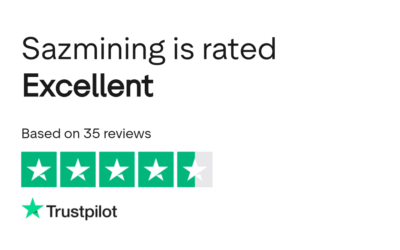Angel investing has emerged as a lucrative and rewarding investment approach, generating an average annual return of 27%, outperforming traditional investment options like venture capital. This high-risk, high-reward strategy involves providing financial backing to early-stage startups in exchange for equity or ownership, playing a pivotal role in fueling innovation by funding approximately 90,000 startups annually. Notably, startups that receive angel investments have a higher chance of long-term success, with 72% surviving at least five years.
The number of active angel investors has surged by 50% over the past decade, reflecting a growing interest in this investment approach that enables wealthy individuals to invest their personal funds in companies they believe in. While distinct from venture capital in terms of investment size and level of involvement, angel investing follows a structured process – from identifying promising opportunities and conducting due diligence to structuring deals, negotiating terms, and ultimately exiting the investment through acquisitions or buybacks.
Índice
Benefits of Angel Investing for Startups
Angel investors play a pivotal role in fueling the growth and success of startups by providing more than just capital. Their expertise, guidance, and strategic connections offer invaluable benefits to early-stage ventures.
Strategic Advantages
- Mentorship and Guidance: Angel investors bring a wealth of experience and industry-specific knowledge, offering startups valuable insights into refining their products, go-to-market strategies, and overall business operations.
- Network and Connections: Angels can introduce startups to potential customers, suggest product improvements, and provide access to a network of future investors, opening doors to new opportunities.
- Personalized Attention: Unlike venture capitalists, angel investors offer personalized attention and mentorship, actively involving themselves in the startup’s progress and filling the initial capital gap.
Improved Survival and Growth
Startups backed by angel investors are more likely to survive, create more jobs, and have a greater chance of successfully exiting the startup phase compared to firms without this support. According to research, angel-backed firms are:
- At least 14% more likely to survive for 18 months or more after funding
- Likely to hire 40% more employees
- Have a 10-17% higher likelihood of successful exit from the startup phase
Additionally, ventures backed by angel investors tend to experience substantial growth and witness a greater rate of return, making them more likely to remain in business longer.
By leveraging the strategic advantages and improved survival rates offered by angel investors, startups can increase their chances of success, realize their full potential, and potentially deliver returns in excess of 10x the initial investment.

Finding Investment Opportunities
For aspiring angel investors seeking promising startups to invest in, leveraging the right platforms and networking channels is crucial. Here are some effective strategies to find investment opportunities:
- Online Platforms and Angel Groups:
- Platforms like AngelList, Angel Capital Association, and Angel Forum provide opportunities to engage with angel investors remotely and access curated startup deals.
- Joining local or industry-specific angel groups can grant access to a pipeline of vetted investment opportunities within your areas of interest.
- Networking and Industry Events:
- Attending startup events, pitch competitions, and industry conferences offers chances to meet founders, evaluate business ideas, and connect with fellow angel investors.
- Utilizing social media platforms like LinkedIn and Twitter can help build relationships with potential co-investors and identify promising startups aligned with your interests.
- Startup Ecosystems and Accelerators:
- Engaging with local startup ecosystems, including co-working spaces, incubators, and accelerators, can provide access to a pool of early-stage companies seeking funding.
- Many accelerators and incubators have dedicated demo days or investor networks, offering opportunities to connect with their portfolio companies.
To maximize success in finding suitable investment opportunities, it’s essential to conduct thorough due diligence on potential startups. This includes reviewing pitch decks, analyzing market size, assessing founder credentials, validating technical capabilities, and discussing findings with fellow angel investors. By leveraging these strategies and maintaining an active presence in the startup community, aspiring angels can increase their chances of identifying promising venture capital opportunities.
Evaluating Investment Opportunities
Due Diligence: A Crucial Step
Conducting thorough due diligence is a critical step in evaluating potential angel investing opportunities. This process involves a comprehensive assessment of the startup’s business plan, market adoption risks, competition, legal and regulatory issues, and the founders’ role. Investors must scrutinize the startup’s financial situation, founding team, and business pitch deck to gauge the economic viability and potential for success.
Assessing the Startup’s Potential
- Idea and Business Plan: Initial meetings with potential angel investors should focus on sharing the startup’s idea, business plan, and progress to date. This allows investors to provide valuable advice and feedback, rather than immediately seeking funding.
- Team and Execution: Successful startups often have a strong founding team with complementary skills and a proven ability to execute. Investors should evaluate the team’s industry experience, passion, and commitment to the venture.
- Market Opportunity and Competition: A thorough analysis of the target market, its size, and growth potential is essential. Investors must also assess the competitive landscape and the startup’s unique value proposition.
Building Connections and Refining the Pitch
Entrepreneurs should plan on having numerous introductory meetings, potentially around 50, to build a network and refine their pitch. This process allows startups to connect with angel investors who can offer strategic help and guidance, not just financial backing. It’s crucial to choose initial investors wisely, as only 20% of companies that raise a seed round go on to raise a Series A.
By conducting comprehensive due diligence and building strong connections with potential investors, startups can increase their chances of securing the right angel investing partners and maximizing their chances of success.

Structuring Angel Investments
Structuring an angel investment deal is a crucial step that involves determining the investment amount, valuation, and terms that align with the interests of both the investor and the startup. This process requires careful consideration and negotiation to create a win-win situation for all parties involved.
Investment Structures
Angel investors typically structure their investments through one of the following methods:
- Equity Financing: In this approach, the investor exchanges capital for an ownership stake in the company. The amount of equity acquired depends on the agreed-upon pre-money valuation of the startup.
- Convertible Notes: A convertible note is a form of debt financing that allows the investor to loan money to the company. This debt can later be converted into equity at a predetermined valuation, typically during the next funding round.
- SAFE (Simple Agreement for Future Equity) Agreements: Similar to convertible notes, SAFEs are a form of convertible security that provides investors with the right to receive equity in the future, based on predefined terms.
Valuation and Deal Terms
Determining the appropriate valuation and negotiating favorable deal terms are critical aspects of structuring angel investments. Key considerations include:
- Pre-money Valuation: This represents the value of the business before receiving investor funds and is a crucial factor in determining the equity stake acquired by the investor.
- Investment Amount: Angel investors typically invest between $10,000 and $2 million in early-stage startups, with the amount influenced by factors such as the startup’s growth potential, market size, and investor’s risk appetite.
- Investor Rights and Protections: These may include anti-dilution provisions, board representation, liquidation preferences, and veto rights over major corporate decisions, among others.
- Staged Investments and Milestones: Setting up the investment in stages, with specific milestones and deliverables, can incentivize the startup to make progress and reduce risk for the investor.
Negotiating these terms requires a delicate balance between protecting the investor’s interests and providing the startup with the necessary flexibility to grow and succeed. Engaging experienced legal counsel and leveraging industry best practices can help navigate this process effectively.
Risks and Rewards of Angel Investing
Angel investing is a high-risk, high-reward endeavor that requires a thorough understanding of the potential risks and rewards involved. While the rewards can be substantial, with the opportunity to generate returns in the thousands of percent, the risks are equally significant, with the majority of startups failing to succeed.
Risks of Angel Investing
- High Failure Rate: The harsh reality is that most startups fail, with an estimated 50% or more failing at the seed stage. This means that angel investors face the risk of losing their entire investment if the company they’ve backed fails to gain traction or run out of funds.
- Illiquidity: Angel investments are not publicly traded, making it difficult to sell shares or exit the investment if cash is needed. This lack of liquidity can tie up an investor’s capital for an extended period, potentially leading to missed opportunities elsewhere.
- Dilution Risk: As startups raise additional rounds of funding from other investors, the ownership percentage of early angel investors may decrease, diluting their stake in the company.
- Lack of Control: By nature, angel investors are minority shareholders, and there is a risk of giving up too much control and equity in the company. This can lead to situations where the founders’ decisions may not align with the investors’ interests.
Risk | Description |
|---|---|
| High Failure Rate | Most startups fail, leading to potential loss of entire investment |
| Illiquidity | Difficulty in selling shares or exiting the investment |
| Dilution Risk | Ownership percentage may decrease with additional funding rounds |
| Lack of Control | Minority shareholders may have limited influence on company decisions |
Rewards
- Potential for High Returns: Successful startups can yield extraordinary returns, with the opportunity to make a significant profit. Some angel investorshave reported returns of 10-20x their initial investment.
- Personal Satisfaction: Beyond financial gains, angel investing offers the intangible reward of satisfaction from knowing that one has helped a young company succeed and contributed to its growth.
- Involvement in Dynamic Companies: Angel investors have the opportunity to be involved in dynamic and growing companies, contributing to the startup team and helping to build something from the ground up.
- Tax Incentives: Depending on the jurisdiction, angel investors may be eligible for various tax incentives and deductions, further enhancing the potential rewards of their investments.
While the risks of angel investing are substantial, the potential rewards can be equally compelling. Successful angel investors mitigate these risks through strategic portfolio diversification across industries, geographies, stages, and deal sizes. Additionally, seeking guidance from experienced angel investors and building a strong community can provide valuable insights and resources, especially for those new to this investment approach.

Tax Considerations for Angel Investors
Tax Incentives for Angel Investors
Angel investors can benefit from various tax incentives designed to encourage early-stage investments in startups and small businesses. These incentives aim to mitigate the inherent risks associated with angel investing and promote entrepreneurial activities.
In the United Kingdom, the government offers two key tax relief schemes:
- Enterprise Investment Scheme (EIS): This scheme provides up to 30% income tax relief on a maximum annual investment of £300,000 in eligible companies. For example, if an angel investor invests £100,000 in an EIS-qualifying company, they can claim a tax relief of £30,000, effectively reducing the net cost of their investment to £70,000.
- Seed Enterprise Investment Scheme (SEIS): The SEIS offers even more generous tax incentives, providing 50% income tax relief on investments up to £100,000 per year in qualifying early-stage companies. Additionally, SEIS investments are exempt from Capital Gains Tax (CGT) on any gains realized upon the disposal of the shares.
| Scheme | Income Tax Relief | Maximum Annual Investment |
|---|---|---|
| Enterprise Investment Scheme (EIS) | 30% | £300,000 |
| Seed Enterprise Investment Scheme (SEIS) | 50% | £100,000 |
These tax relief schemes not only reduce the initial investment cost but also offer the potential for tax-free gains upon successful exits. However, it’s essential for angel investors to carefully review the eligibility criteria and consult with professional advisors to ensure compliance and maximize the benefits of these incentives.
Building a Successful Startup-Investor Relationship
Building a successful startup-investor relationship is a crucial aspect of securing funding and fostering long-term growth. It’s a process that requires dedication, transparency, and a genuine commitment to creating value for both parties. Here are some key strategies to cultivate strong and mutually beneficial relationships with investors:
Laying the Groundwork
- Start Early: Initiate the relationship-building process well before seeking funding, ideally 12 months or more in advance. Attending prestigious colleges or joining entrepreneurial communities like Startup Grind can help establish valuable connections early on.
- Build Trust and Credibility: Under-promise and over-deliver on your commitments to demonstrate reliability and trustworthiness. Focus on offering authentic value to investors without expecting immediate returns, and prioritize building friendships over transactional relationships.
- Get to Know Investors: Treat the initial stages like a “dating phase,” where you get to know investors as individuals, understand their behavior during challenging times, and allow them to assess your character and commitment.
Nurturing the Relationship
- Celebrate Milestones Together: Involve investors in your journey by sharing victories and milestones, fostering a sense of camaraderie and investment in your success.
- Overcome Challenges Collaboratively: Face and overcome obstacles together through shared experiences and team-building exercises, strengthening the bond and demonstrating your resilience.
- Maintain Open Communication: Provide regular updates, both corporate and personal, to keep investors informed and engaged. Remember personal details to show genuine interest and care.
- Seek Warm Introductions: Leverage existing connections within an investor’s circle of trust to establish initial rapport and expedite the process of securing funding.
| Strategy | Description |
|---|---|
| Start Early | Initiate relationship-building well before seeking funding |
| Build Trust and Credibility | Under-promise and over-deliver, focus on offering value |
| Get to Know Investors | Understand their behavior and allow them to assess your character |
| Celebrate Milestones Together | Involve investors in your journey, fostering a sense of camaraderie |
| Overcome Challenges Collaboratively | Face obstacles together, demonstrating resilience |
| Maintain Open Communication | Provide regular updates, remember personal details |
| Seek Warm Introductions | Leverage existing connections within an investor’s circle of trust |
By following these strategies, you can cultivate strong, transparent, and mutually beneficial relationships with investors, increasing the chances of securing funding and fostering long-term success for your startup.
Conclusión
The journey from novice to expert in angel investing is an exciting and rewarding one, filled with opportunities to fuel innovation, generate substantial returns, and contribute to the growth of dynamic startups. By leveraging effective strategies for finding, evaluating, and structuring investments, mitigating risks through due diligence and portfolio diversification, and fostering strong relationships with founders, aspiring angels can navigate this high-stakes realm with confidence.
Ultimately, successful angel investing requires a combination of sound financial acumen, industry knowledge, and a genuine passion for supporting entrepreneurial endeavors. As the startup ecosystem continues to thrive, the role of angel investors will remain pivotal in driving innovation, job creation, and economic growth, making this investment approach an enticing prospect for those seeking both financial rewards and the personal satisfaction of playing a key role in shaping the future.









